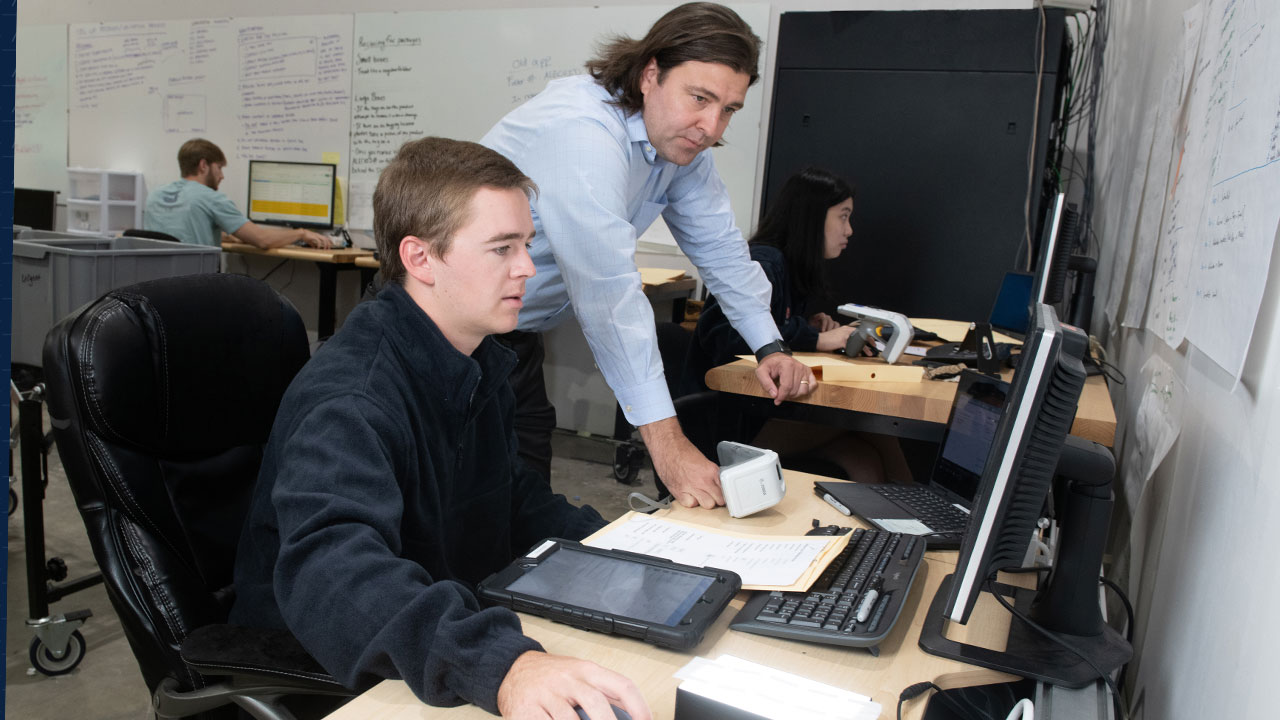content body

Justin Patton, director of the Auburn RFID Lab, works with a student in the lab.
Auburn University has partnered with Los Alamos National Laboratory (LANL) to enhance collaboration in research, education and workforce development via the Weapons Production-Technology and Nuclear Training Program (WP-TNT).
Through the WP-TNT initiative, Auburn will collaborate with LANL and its partner, TechSource Inc., to introduce advanced Radio Frequency Identification (RFID) tracking and analytical data processing techniques aimed at optimizing inventory management in LANL’s secure environment.
This partnership will enable Auburn to explore new avenues of collaborative research with LANL and enhance curriculum and educational opportunities for the university’s students.
“The WP-TNT partnership with LANL will advance RFID technology for precision location systems and hopefully open up many paths of opportunity for Auburn students to work with a premier government technology lab,” said Justin Patton, director of the Auburn RFID Lab.
LANL will also gain the opportunity for outreach within the Auburn University community.
Auburn is at the forefront of sensor technology and is empowering students to have hands-on experience with RFID applications. The partnership with LANL will allow students to expand their knowledge of RFID systems implementation in adverse environments.
Through the WP-TNT partnership, Auburn students and LANL subject matter experts will expand their knowledge of RFID inventory tracking, collaborate to advance sensor technology innovation and foster connections between students and LANL professionals.
“This partnership is very timely in addressing some of LANL’s immediate workforce development needs and is a significant step toward Auburn and LANL’s mutual goal of building a long-term relationship, as formalized in the memorandum of understanding the two institutions signed in June 2022,” said Daniel Tauritz, Auburn’s director for National Laboratory Relationships and an associate professor in Auburn’s Department of Computer Science and Software Engineering.




